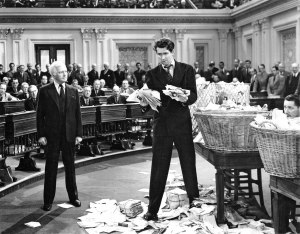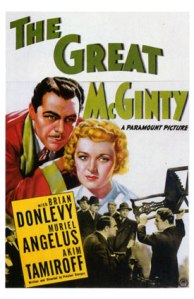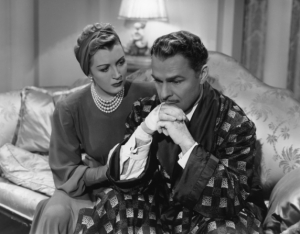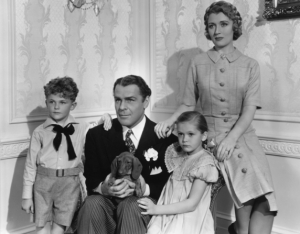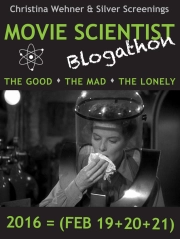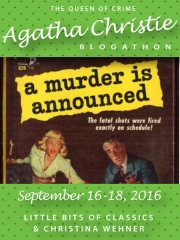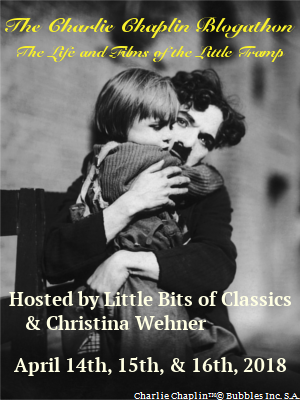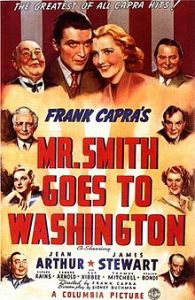 After watching Meet John Doe and The Miracle Woman, I was struck by one (of many) themes that Frank Capra seemed repeatedly interested in exploring: whether or not something is still true – faith, an ideal, a principle – even when it is exploited, ignored or corrupted. I had a dim memory that Frank Capra also explored this theme in Mr. Smith Goes to Washington so I thought it was time I revisited it.
After watching Meet John Doe and The Miracle Woman, I was struck by one (of many) themes that Frank Capra seemed repeatedly interested in exploring: whether or not something is still true – faith, an ideal, a principle – even when it is exploited, ignored or corrupted. I had a dim memory that Frank Capra also explored this theme in Mr. Smith Goes to Washington so I thought it was time I revisited it.
The first time I saw Mr. Smith Goes to Washington I was still in my phase of resisting Frank Capra. On the surface, he seemed simplistic and contradictory. I’ve been rethinking that assessment, however, and warming to his films. And this time I around I was greatly impressed by Mr. Smith Goes to Washington.
When a senator from an unnamed state dies, the governor must appoint a temporary senator until the next election. But the governor (Guy Kibbee) and all the politicians are beholden to party boss Jim Taylor (Edward Arnold), a corrupt man who ensures that certain people stay in power, all the while lining his own pockets. The governor chooses Jefferson Smith (James Stewart), the young leader of the Boy Rangers, who they believe will be too ignorant and naive to interfere with Jim Taylor’s little projects in the senate.
Jefferson Smith is awed to be chosen an honorary senator and is especially honored to become the colleague of the revered Senator Joseph Payne (Claude Rains), who used to work with his father fighting for justice for “lost causes.” Jefferson Smith thinks of Payne as a saint, a man who has done well for his state and who looks very likely to make it to the White House. He’s even called the Silver Knight. But Payne, it turns out, is just as beholden to Jim Taylor as all the rest of the politicians of the state.
Jefferson Smith is also assigned a secretary, Clarissa Saunders (Jean Arthur), a tough-egg, knowledgeable, smart and cynical, who is initially convinced that Jefferson Smith is just a stooge, until she realizes that he’s actually sincere and no man’s patsy, at least when he realizes what is really going on. He wants to introduce an inoffensive bill to create a national boy’s camp, but it turns out that it conflicts with a bit of pork in an appropriations bill that will benefit Taylor. When Smith discovers this (with Saunder’s help), he refuses to go along with it and sets out to expose them, only to have Taylor and the “saintly” Payne frame him for the exact crime they committed.
Thus begins the filibuster to end all filibusters, with Saunders coaching him all the way; one man standing against the party machine. It’s epic.
My first thought was, “What a cast!” Frank Capra always seems to assemble the most marvelous collection of actors. Edward Arnold (in a similar role to Meet John Doe), Eugene Pallette, Porter Hall, Harry Carey, Guy Kibbee, William Demarest, Thomas Mitchell (drunk, as usual). Jimmy Stewart is perfect as the sincere and naive junior senator who, by all rights, ought not to be in politics, but on finding himself in that position, is willing to fight for what is right. He’s a modern-day nearly-martyred saint.
Jean Arthur is also fantastic. I’ve been watching her in some of her comedies, like Easy Living, where she is a bit of a scatter brain, but not in Mr. Smith Goes to Washington. Her character actually shares a lot of similarities with Barbara Stanwyck’s in Meet John Doe: hard-boiled woman who had to go to work young because her father was so philanthropic and ethical that he couldn’t provide for his own family, yet still retains the values of her father deep inside. Her affection for Jefferson Smith hovers between mothering solicitude and deep admiration.
But for me, it is Claude Rains who really gets the best role. He manages to show both the vestiges of the idealism he felt as a young man and the well-schooled, ambitious politician of today. The admiration Jefferson Smith feels for him and the genuine affection Payne has for Smith as the son of his friend makes his denunciation of Smith one of the more effective betrayals I’ve seen in cinema. You can see the hurt confusion in Smith’s eyes and how Payne hates himself for it. Claude Rains also demonstrates perfectly the dichotomy between the private man and the public one, switching between publicly denouncing Smith without batting an eye to being privately ashamed of himself and almost sick to his stomach.
The central question Jefferson Smith must ask himself is, “are the American principles he believed in still true, even though he was pilloried and the government is mired in corruption and ambition?” The answer, Saunders urges him, is yes. And it’s worth fighting for. But the irony is that although Jefferson Smith expects the people of his state to rise up and vindicate him, the state party machine is too strong and manages to suppress his defense. He doesn’t exactly convince anyone. All that happens is that the war inside Joe Payne (a la Darth Vader) finally comes to a head and his guilt nearly pushes him over the edge and Payne himself vindicates Smith.
Perhaps the message here is that hope is not necessarily to be found in groups of people or the press or the political system, but simply in the consciences of individual people, which is still alive despite all. The most unexpected people can both disappoint, but also support you. The other message, perhaps, is that right is always worth fighting for, win or lose. Or perhaps it’s a story of rediscovery: Joe Payne, Clarissa Saunders, even Jefferson Smith to a certain degree, must rediscover their ideals that have been buried or obscured by the slings and arrows of fortune.
Mr. Smith Goes to Washington and Meet John Doe would make, I think, an revealing double feature. There are many similarities – the martyred public man who ambitious and corrupt men attempt to use as a tool, then destroy when they refuse to be used, the smart, tough-talking woman who is softened by the man and rediscovers the principles of her youth, the self-doubts, the media wars, the exploitation, the fickleness of people in following their hero, the rapidity in which a hero can fall or rise, the struggle to maintain one’s personal integrity. They are films that reward repeat viewings.
